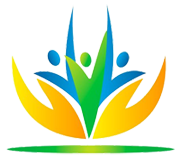 Any relationship which exists in our life is fraught with misunderstandings and misinterpretations because, unless we ask, we automatically make assumptions based on our perspective of the world. This is driven, in turn, by our internal map built up through our experiences, memories, beliefs, and bias. If you read the first article in this series, NLP - An Introduction, you may remember that I suggested a Helpful Hint to get you started with understanding others’ map:
“If you don’t know where to start, the best approach is to ask questions to give you both a better understanding of each other.” Any relationship which exists in our life is fraught with misunderstandings and misinterpretations because, unless we ask, we automatically make assumptions based on our perspective of the world. This is driven, in turn, by our internal map built up through our experiences, memories, beliefs, bias etc. I have found, particularly in a working environment, it is useful to consciously start every relationship with a “Framing” conversation. Some methodologies may refer to this as contracting. Over time, this happens naturally in friendships although it’s always a good idea to apply the framing concept to any relationship if there appears to be a mismatch of intentions or understandings. Personally, I consider what I want from the relationship (and every relationship could be different), how I want them to interact with me and what I need from them in order for them to get the best from me. I would then dedicate an entire meeting to this subject. It’s important to talk to and even more important to *listen* to people in order to understand them and vice versa. This also provides a foundation for future discussions; perhaps to add new layers as you discover them or to reiterate something which isn’t quite gelling yet. Let’s give this a go! Pick a person with whom you’d appreciate a framing conversation. Got someone in mind? Great… Let’s start. This is the checklist I run through when approaching this: * What do I want out of this relationship? o Consider the required outcomes o E.g. Successful project completion, fun, gain a new friend, remain professional * What do I need them to know about me for the most frictionless experience? o E.g. Equal partnership, Open discussion, Honesty, Communication * What are their outcomes * What do I need to know about them to achieve both sets of outcomes? * What will be our framework for moving forwards? o At the very least, I aim to agree a plan for feedback and feedforward to ensure the smooth running of a successful partnership In my experience, ensuring every relationship undertakes the framing process leads to regular, open and honest conversations moving forwards. In this way, every party is happier, more productive and successful. This is true whether it be a personal or professional circumstance. It’s a pretty simple process. As I said last time and at the start of this article – ask questions. It’s the best way to find out about someone and to give yourself the opportunity to let them know what you’re really about. Take the guesswork out of relationships and start framing your conversations in the best possible way! Next month, we’ll be exploring more useful NLP tips and techniques so be sure to watch this space! In the meantime, if you’d like more information, advice or just to chat, please get in touch as I’d love to hear from you. Kellie Lucas
0 Comments
Leave a Reply. |
The Holistic Life CoachHolistic & Natural Solutions for Health and Wellbeing Categories
All
Archives
March 2018
|
COOKIE POLICYWe use cookies on this site to help us improve your experience. If you wish to understand fully how we use these, click through for our 'cookie policy'.
PRIVACY POLICY |
disclaimerAll material on this website is provided for your information only and may not be construed as medical advice or instruction. |
Contact UsSubscribeJoin our mailing list today!
|


 RSS Feed
RSS Feed